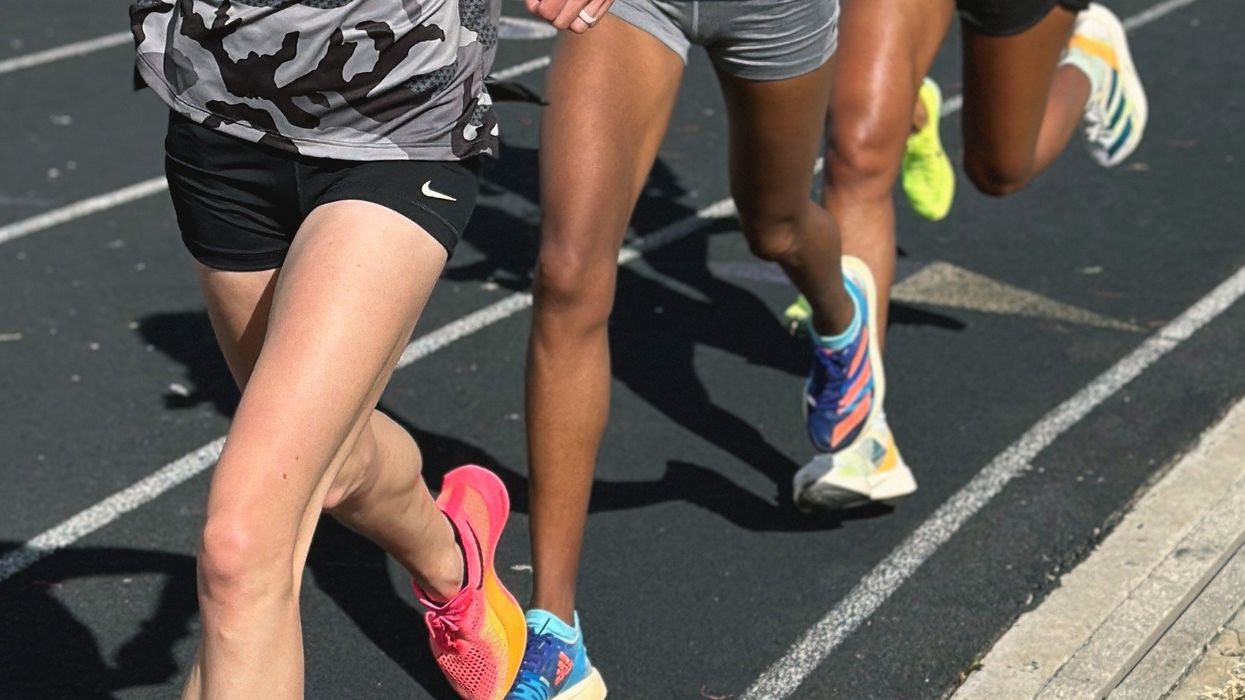For decades, collegiate sports have served as a powerful platform for achievement, community, and identity. But amid the victories and records, a quieter struggle persists—one rooted in systemic neglect of women's unique health needs. While gender disparities have garnered increasing attention across society, the gap in sports medicine remains pronounced. Less than 2% of federally allocated research funding targets reproductive health and related issues, leaving many female athletes without the tailored support necessary to thrive.
Recognizing this gap, the University of Washington has begun pioneering initiatives to address women’s healthcare needs in collegiate athletics, emphasizing a holistic, research-informed approach. These efforts aim not only to improve individual athlete outcomes but also to set a precedent for other institutions seeking to foster gender equity in sports medicine.
Addressing a Critical Gap in Sports Medicine
Women athletes often face challenges that differ markedly from their male counterparts, yet most sports medicine protocols are built around male physiology. Menstrual health, hormonal fluctuations, injury risks related to bone density, and birth control management are among areas historically overlooked or poorly understood in athletic programs. The limited funding allocated to female-specific research exacerbates these issues, leaving coaches and trainers inadequately equipped to address them.
Research indicates that female athletes are nearly twice as likely as male athletes to experience delayed diagnosis and treatment of injuries, often due to gendered gaps in healthcare knowledge and research. A 2022 survey published in Sports Medicine found that only 18% of sports medicine research specifically addressed women’s health issues, underscoring the systemic neglect and the need for more targeted studies to improve care outcomes for female athletes.
In response, UW’s Global Center for the Integrated Health of Women, Adolescents, and Children (WACh) has integrated research and practice to bridge these gaps. One of the center’s Managing Directors emphasizes the importance of translating research into tangible care improvements. “Our mission is to develop personalized healthcare solutions that recognize and respect the unique physiological and emotional needs of women in sports,” she explains. “This is a step toward gender equity in athletic health management.”
Pioneering Programs and Personal Narratives
UW’s approach combines scientific research with personalized, athlete-centered care. A key component has been fostering open communication about menstrual health and reproductive cycles among female athletes, coaches, and medical staff. Instead of relying solely on wearable technology, athletes regularly inform their trainers and coaches about their cycle stages, which are discussed as openly as muscle soreness or injury updates. This ongoing dialogue enables training and recovery plans to be adjusted accordingly, thereby reducing injury risks such as stress fractures and overtraining.
Riley Newman, a sprinter on UW’s track team, exemplifies the profound impact of these initiatives. A few years ago, Riley endured two stress fractures that sidelined her from competition for months. The recovery process was grueling, marked by physical pain and emotional frustration. But thanks to the university’s holistic support—focused on her physical health, nutrition, mental well-being, and open discussions about her menstrual cycle—she was able to return to the track stronger than before.
“Initially, I felt overlooked,” Riley recalls. “They didn’t realize how hormonal imbalances or stress contributed to my injuries. But once I started openly sharing my cycle and the coaches and medical staff began paying attention to my entire health picture, I saw a real difference.”
Her recovery wasn’t just physical; she noted improved mental resilience after working with sports psychologists and healthcare providers trained explicitly in women’s health issues. “It was empowering to have an advocate who understood what I was going through. That support made all the difference in my return,” Riley adds.
Her experience highlights the importance of a comprehensive approach—combining physical therapy, psychological support, and reproductive health education—to promote athlete well-being and enhance performance.
Improving Knowledge and Awareness: Addressing Systemic Gaps
One of the central lessons from UW’s initiatives is that systemic change requires more than just new programs; it requires widespread education. Many coaches, trainers, and medical staff lack sufficient training on women's health, leading to misdiagnosis or overlooked symptoms.
WACh staff members emphasize that fostering awareness at all levels is critical. “We’re developing training modules for coaches and medical staff that focus on gender-specific health concerns,” states the center’s managing director. “Understanding menstrual cycles, hormonal impacts, and emotional health are crucial components of effective care.”
This focus on education aligns with broader shifts in sports culture, as teams increasingly recognize that supporting female athletes involves addressing not only physical care but also mental health, emotional well-being, and social needs. Creating an environment where conversations about women’s health are normalized and mental health issues are openly addressed is part of this movement toward holistic support.
Limitations
While UW’s efforts in women’s sports healthcare are impressive and innovative, challenges persist regarding scalability and consistency. Unlike UW’s well-established research centers and comprehensive programs, Washington State University (WSU) has only recently initiated pilot initiatives, such as menstrual health tracking, and lacks the extensive infrastructure to implement widespread change. Both universities face difficulties in ensuring all coaches and staff are adequately trained, particularly across different teams and sports. Additionally, addressing socioeconomic and cultural disparities remains an ongoing challenge. Recognizing these limitations highlights the need for sustained funding, broader collaboration, and ongoing education to ensure that advances in women’s athlete healthcare are equitable and widespread.
Policy and Community Support as Catalysts
Legislative support has also played a crucial role in advancing these efforts. In January 2025, Washington state approved new legislation aimed at improving access to reproductive health services for student-athletes. The bill allocates grants for university health centers to develop and expand gender-specific programs and research.
Senator Senait Brown, a key supporter of the bill, affirms its significance: “This legislation ensures that every woman athlete, regardless of background or socioeconomic status, has access to the support she needs. It’s about creating a fairer, more equitable system that recognizes and addresses the unique health needs of women in sports, paving the way for lasting systemic change.”
Looking Ahead
The 2025 legislative bill in Washington state, coupled with the university’s emphasis on open communication and comprehensive education for coaches and trainers, signals a meaningful shift toward bridging the gender gap in athletic healthcare support. By prioritizing transparent dialogue among athletes, medical professionals, and coaching staff, UW is fostering an environment where the unique health needs of female athletes are acknowledged and addressed proactively. Investing in the education of coaches and trainers through expert-led training and research ensures that care is grounded in scientific understanding and best practices. Together, these efforts are empowering female athletes to not only compete at their highest levels but also
to thrive in a supportive, equitable environment. As this model continues to evolve, it offers a promising blueprint for other institutions seeking to create lasting change in women’s athletic health support.
Moa Segerholt is a student at the University of Washington. She was one of the students in the "Media Responsibility in a Diverse Society" class, taught by Hugo Balta.
Balta is the executive editor of the Fulcrum and the director of NextGen initiatives. He is also the publisher of the Latino News Network and an accredited Solutions Journalism and Complicating the Narratives trainer with the Solutions Journalism Network.
The Fulcrum is committed to nurturing the next generation of journalists. Learn more by clicking HERE.
SUGGESTION: NextGen Initiatives: Fulcrum Fellowship
 From top left to right and then clockwise: Lluvia Chavez, Roselyn Gonzalez, Layla Halilbasic, Nathaly Suquinagua, Jared Tucker thefulcrum.us
From top left to right and then clockwise: Lluvia Chavez, Roselyn Gonzalez, Layla Halilbasic, Nathaly Suquinagua, Jared Tucker thefulcrum.us




















